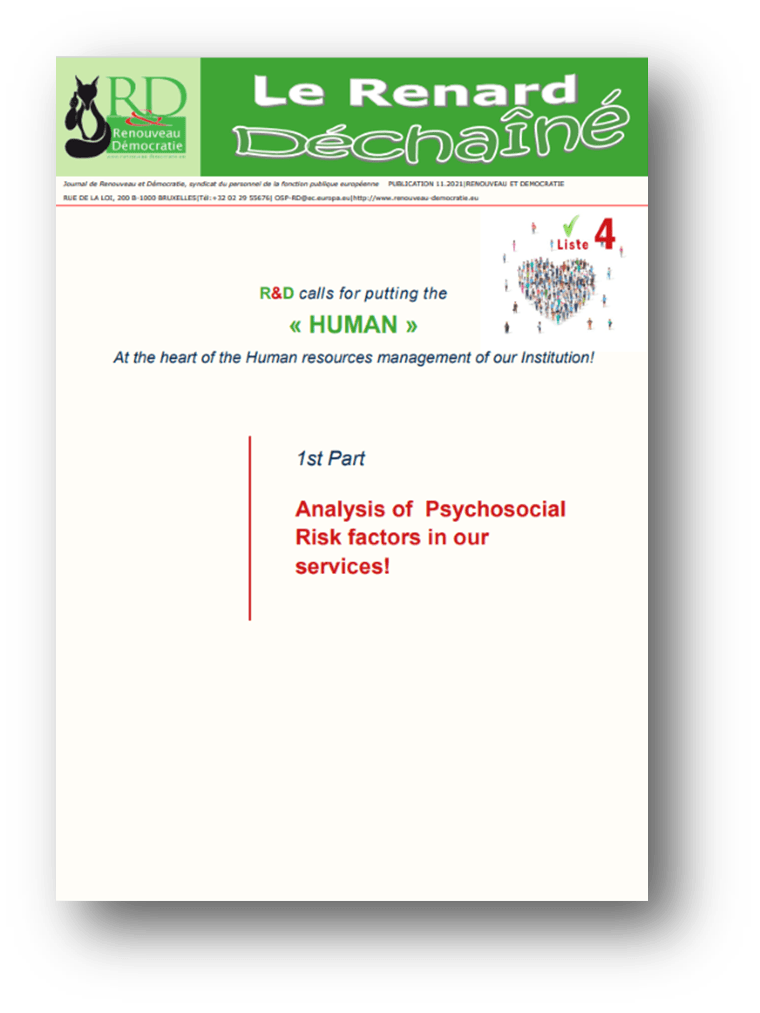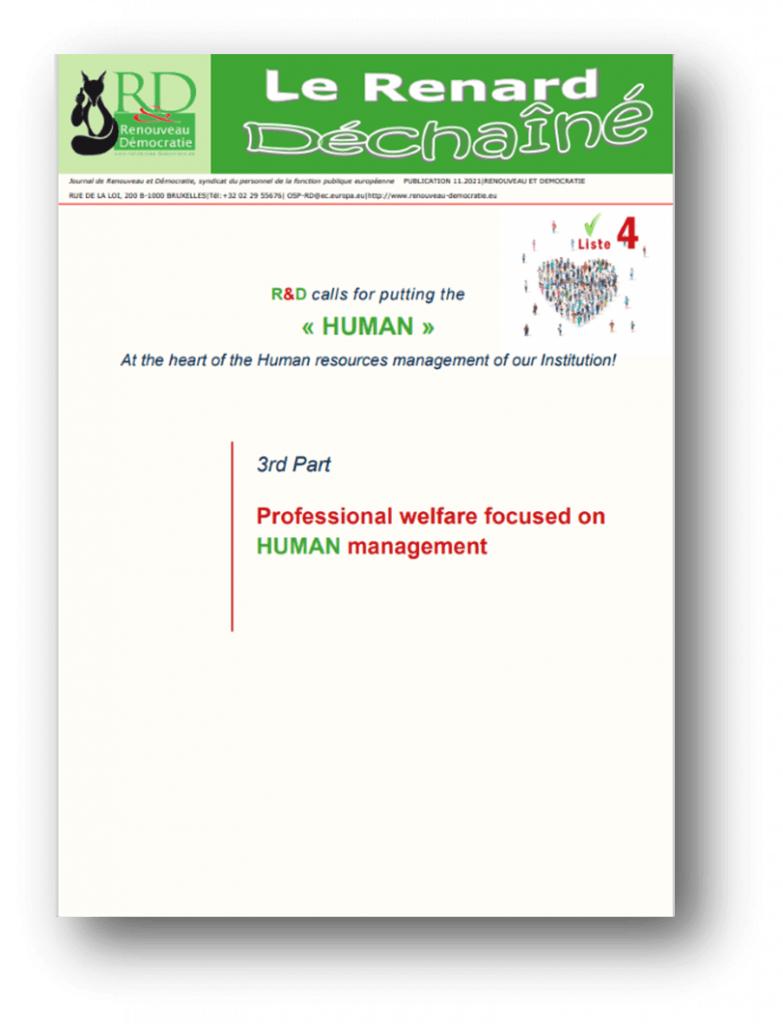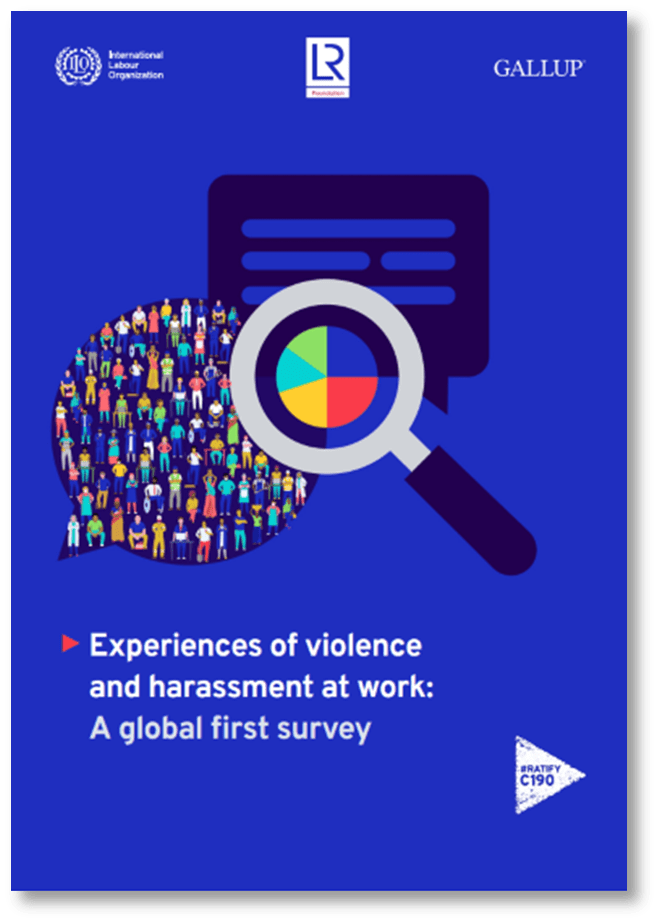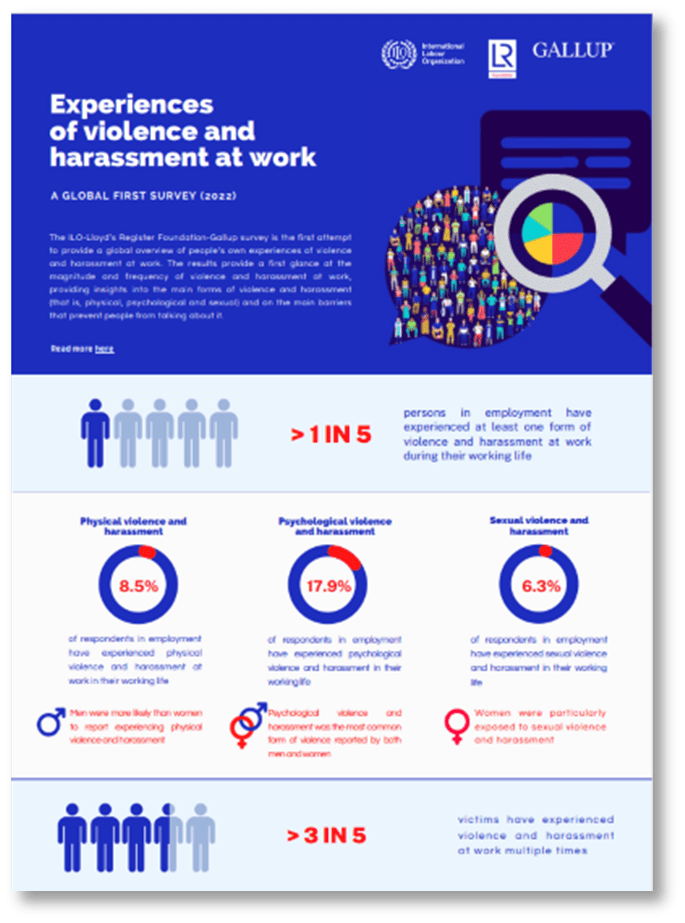In the recent weeks, R&D with its partners in the Alliance and the other unions have been called upon to negotiate the new anti-harassment policy. You have also been invited to participate in a discussion to make your contributions via the GRP-New anti-harassment policy Teams group. In addition, R&D works closely with the colleagues who animate the Harassment Watch Network in their excellent work, which deserves to be recognised and valued.
Before putting in place a policy against harassment, it is essential to assess psychosocial risks within the institution as well as within each DG, directorates, services and units in order to have a clear picture of the risk factors present, which have an impact on the quality of life and working conditions of the staff. And, subsequently, to prepare a plan to prevent harassment.
Harassment at work is one of the most harmful psychosocial risks with implications for the physical and mental health of the victim. Unusual fatigue, nervosity, eating disorders, taking psychotropic drugs, leading to widespread anxiety, the victim who is not treated in time risks developing a post-traumatic stress syndrome that can lead to the ultimate act, the suicide.
Faced with both empty and ritual slogans advocating “zero tolerance”, which too often led to “100 % impunity”, R&D approached the best experts in the field and asked the institution to finally put in place a policy to prevent psychosocial risks and, subsequently, a policy for preventing harassment (see our e-conference).
In our special Renard Déchainé “Analysis of psychosocial risk factors within our institution” , we outlined the risk factors already present in the various services and provided solutions “Professional welfare centred on human management”.
ILO confirms that violence and harassment at work affect more than one in five people
Recently, the International Labour Organisation (ILO), the Lloyd’s Register Foundation (LRF) and Gallup issued their report on the first global survey on experiences of violence and harassment at work in order to achieve a better understanding and awareness of a problem rooted in economic, social and cultural factors.
But in the Commission the victims do not dare to complain because they do not trust the procedures in force and the independence of the actors responsible for implementing them.
The results of the “Respect at the Workplace” survey (link) launched by DG HR confirm that more than 20 % of colleagues, one in five, have experienced personal experience or witnessed behaviour relating to psychological harassment.
However, in its 2021 report, out of the 95 cases registered, IDOC registered 24 complaints concerning psychological and sexual harassment and 24 complaints about inappropriate behaviour ( link ). Only 1 case of sexual harassment was sanctioned.
“Everyone is equal before the law, but some are more equal than others…”.
This lack of trust in the independence of the actors responsible for implementing harassment procedures is all the more evident when managers are involved.
Staff perceive that the same conduct is treated differently according to the hierarchical role of the colleagues concerned. And that there is no real protection for victims who dare to complain and for witnesses who dare to express themselves.
However, without dispelling these perceptions and without establishing a strong bond of trust between the institution and its staff, accompanied by a genuine harassment prevention policy, the facts will remain hidden, the victims forgotten and a profound feeling of injustice and impunity will continue to exist.
Moreover, to restore confidence, it is essential to ensure the independence of the bodies responsible for implementing the above procedures, firstly with respect to investigations.
The position of R&D is clear: our staff have the right to enjoy at least the same protection that is guaranteed by the best practices in the Member States
R&D has therefore decided to approach the best experts and, together with Marie Pezé, to launch a series of conferences on harassment that will enable us to negotiate the new anti-harassment policy as best as possible.
We expect many of you to attend these conferences, so that you can express yourself and share your feelings about your daily life.




